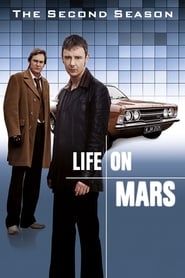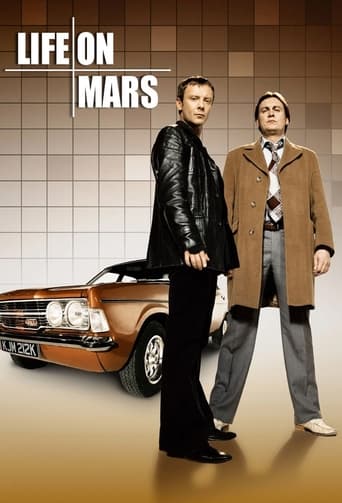Is he mad, in a coma… or has Detective Sam Tyler really travelled back in time?
Sam Tyler es un inspector jefe que investiga en 2006 un caso de un asesino en serie, cuando es atropellado por un coche. Al despertar, se ve transportado misteriosamente atrás en el tiempo a 1973. Inicialmente tiene que luchar para comprender su situación actual, tiene que acostumbrarse con la tecnología y la actitud de la época, mientras trata de averiguar cómo llegó a estar atrapado en el pasado. El actor John Simm describe el espectáculo como "un cruce entre Back to the future y The Sweeney", y hace uso efectivo de la desorientación de los viajes en el tiempo teniendo un paseo post-moderno por la moda y las tecnologías de la década de 1970, con el debido homenaje a los clásicos dramas policiacos de la época para crear una serie verdaderamente única.
*Si nuestra moderación aprueba tu versión, será reemplazada y serás acreditado como autor del texto.
Página principal
Año2006
Número de episodios16
Número de temporadas2
Duración del episodio60
EstadoEnded
GénerosCrimenDramaMisterioSci-Fi & Fantasy
Países de producciónUnited Kingdom



